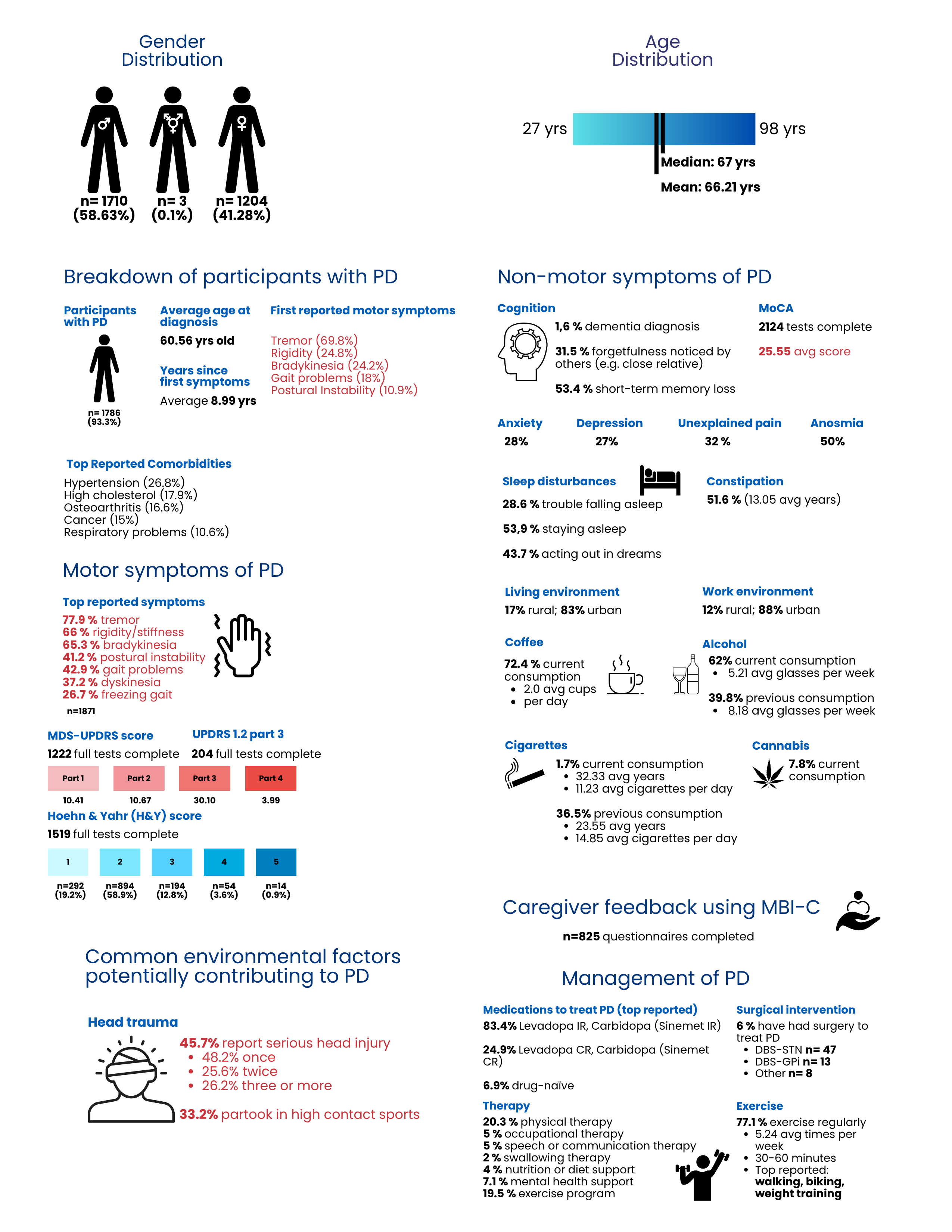Distribution by site
Recent News
Contact Us
- Our Location
Centre de Recherche de l'Institut Universitaire de Gériatrie de Montréal (CRIUGM) 4545, Chemin Queen-Mary, Montréal (Québec) H3W 1W4
- Telephone Number
(403) 220-2276
- Email Address
Centre de Recherche de l'Institut Universitaire de Gériatrie de Montréal (CRIUGM) 4545, Chemin Queen-Mary, Montréal (Québec) H3W 1W4
(403) 220-2276

The Canadian Open Parkinson Network (C-OPN) hosts one of the largest and most comprehensive collections of de-identified Parkinson’s disease (PD) data in Canada. C-OPN’s standardized platform enables researchers to access high-quality clinical, demographic, epidemiological, genetic, and imaging data from a diverse cohort of participants living with PD and related disorders.